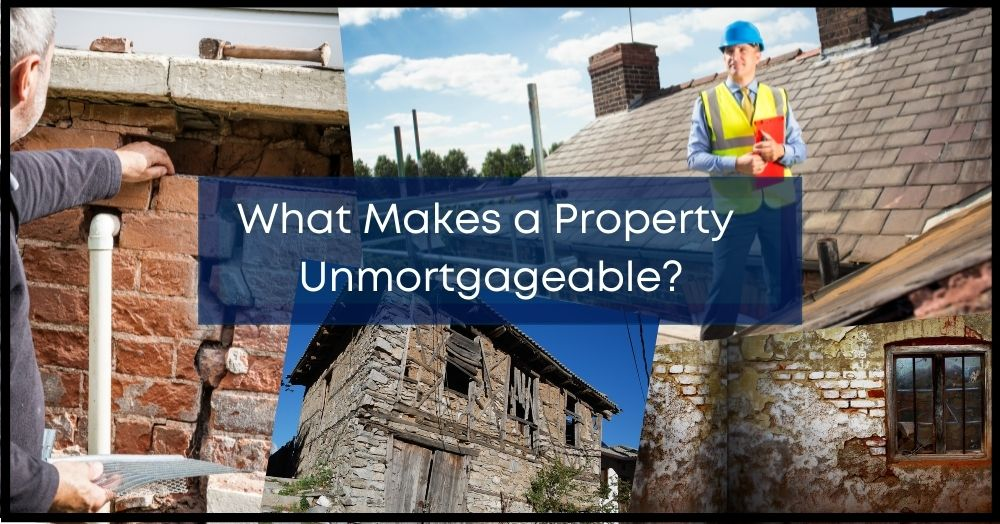In this two-minute read, we look at reasons why a property may be classified as unmortgageable.
Selling a property can be tricky at the best of times, but when a property is deemed unmortgageable things can get complicated.
‘Unmortgageable’ means lenders won’t allow a potential buyer to borrow the money they need to buy a property. For many sellers, this can be a knockout blow and can significantly reduce their options.
Here are five common reasons why lenders won’t finance a purchase.
1) The property is uninhabitable
This applies to derelict properties, buildings that have been abandoned, that pose safety risks, or are considered not weatherproof. In addition, properties without a kitchen or bathroom may also be classed as unmortgageable.
As a buyer, you may have big plans to restore a dilapidated property, but a lender may take a different view. If this is the case, always seek financial advice to learn how else you could finance the purchase.
2) Structural problems
If a property resembles the Leaning Tower of Pisa, chances are it’s got a bad case of subsidence – another big no-no for lenders. Other structural issues affecting whether or not a property is mortgageable include severe damp, dry or wet rot.
3) Short lease
If you spot a flat on the market for well below market value, it may have a short lease (under 70 years). A short lease knocks thousands off the value of a property as a buyer may struggle to get a mortgage (if they can get one at all). They’d also have to pay for a lease extension. This is costly (and can take ages) and there are often restrictions around how long you can own a property before applying for a longer lease.
4) Proximity to commercial or industrial sites
Lots of people live above shops so obviously, these properties aren’t unmortgageable, but they aren’t always given regular residential mortgages. Particularly if they are above shops such as dry cleaners or restaurants (where there’s a high risk of fire/smoke damage). Similarly, if you buy near a factory or industrial site, a lender may be more reluctant to provide a mortgage as it may be difficult to sell on.
5) Doesn’t comply with building regulations
Sometimes extensions or building work is carried out without the necessary approval or doesn’t meet strict building regulations. This can hamper a sale as a lender will need to see the necessary permissions/certificates to provide a mortgage.
Speak to us at MECS to find out how we can help you sell an unmortgageable property.
Interested in our service?
What other agents charge you extra we include in our service. We only offer 1 package which is HIGH-LEVEL MARKETING ⏰🚀📸🏠💥
• Bespoke professional photography
• Property videos
• 360 tour
• Dedicated marketing manager
• Floor plans
• Drone footage


